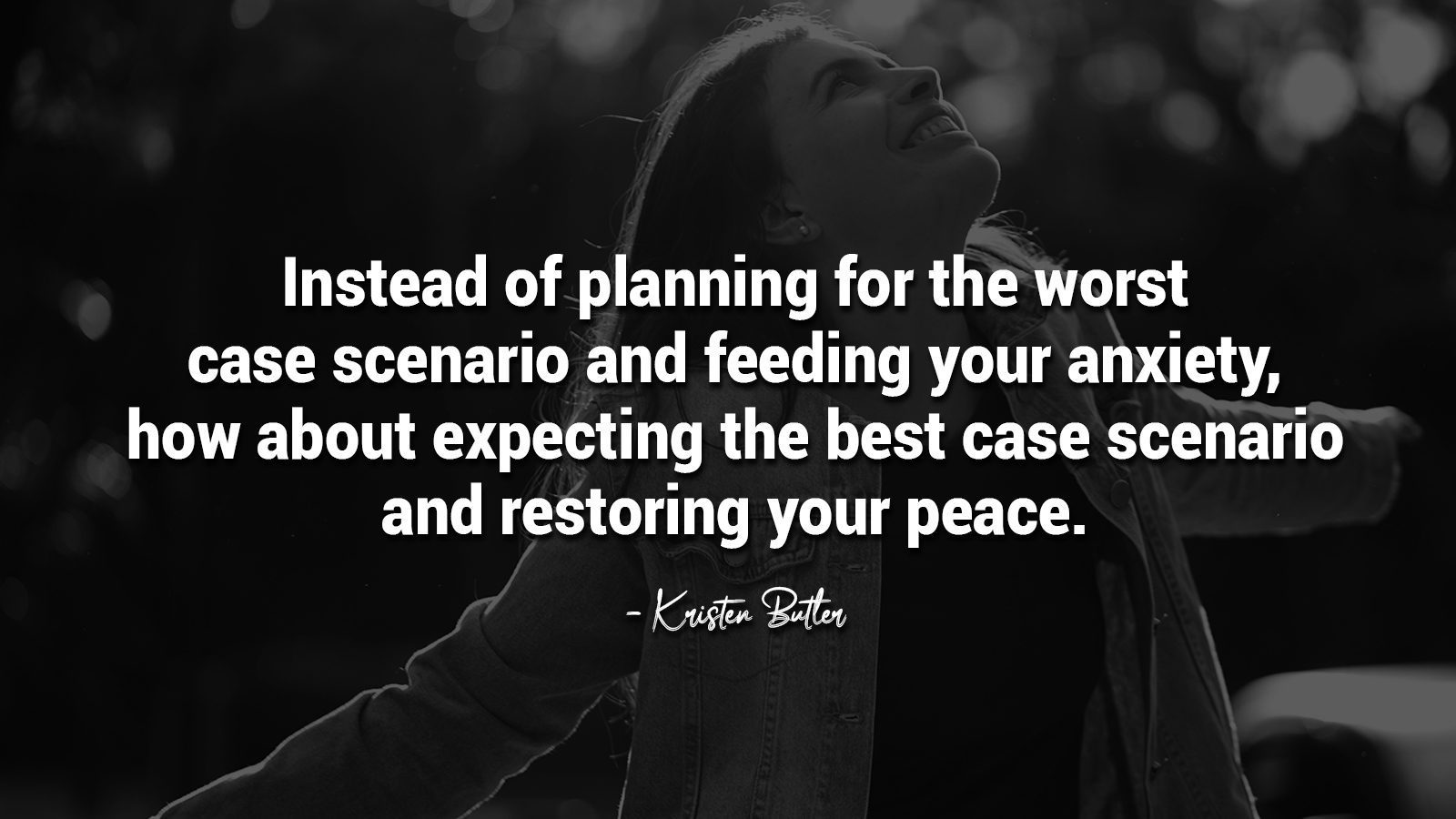It’s normal for us to feel on edge from time to time. The demands that are placed on us – from our work, families, finances, etc. – can sometimes feel overwhelming. For people with chronic anxiety, a persistent unease is a day-long event. The tendency of anxiety-ridden people to mask their illness for fear of being “discovered” often makes the experience more difficult – both for the individual and those who care for them.
If someone that you care for has anxiety, you may feel a loss of control – this is entirely normal; just understand that simply being there for your loved one can make a difference.
Here are 11 ways to compassionately support someone with anxiety:
#1 – Be accepting and open.
Simply let the person know you’re there and willing to listen without judgment or criticism. If they do open up to you, refrain from giving feedback or advice on what they should or shouldn’t do unless they ask. It’s important to understand that simply allowing them to talk about their thoughts and feelings can bring a sense of relief. It isn’t necessary to analyze everything that they say. Just be present, look them in the eyes, and acknowledge their concerns.
#2 – Educate yourself.
Understanding the medical reasons for anxiety is a great asset and will help you to be part of a better support system. It’s important to remember that an anxiety disorder is not a thought disorder but a chemical imbalance. A person with chronic anxiety innately understands this, because as hard as they try to stop the thoughts, the more they realize that this is extremely difficult. Even a basic understanding of the disorder and its symptoms can make you a better, more knowledgeable person to be around.
#3 – Spend time with them.
Just because someone you love has anxiety doesn’t mean they don’t want to spend time with you. In fact, your being around your loved one is often an excellent source of comfort. This is for two reasons: (1) they thoroughly enjoy your company, and (2) your presence makes it more difficult for them to think about their anxiety. Also, try to best to recognize their need for space. If they say things like “I want to be alone” or “I just need time to myself,” make sure you oblige accordingly.
#4 – Don’t bring it up if unasked.
The affliction can often be a source of embarrassment for a person with chronic anxiety. While anxiety is nothing to be ashamed of (they can’t help it, after all), it’s still a touchy subject for them. Trying to rationalize an often irrational disorder will only subject the person to more uncertainty and shame. Instead, just be present and talk about what they want. If you talk about sports, talk about sports. If you talk about movies, talk about movies, and so on.
#5 – Get active.
If you are available and the opportunity presents itself, take the person outside. Exercise is a well-known remedy for anxiety and can bring an almost magical effect on a person’s mindset. Do something fun, like a hike, bike ride, or shoot some baskets. Even a quick stroll at the local park can help alleviate some of the symptoms caused by anxiety. The reason why exercise is so effective is that it causes the release of endorphins – hormones that can create euphoric feelings.
#6 – Remain hopeful.
Anxiety is a treatable condition; it just takes time. Plenty of free resources are available for people who suffer from the disorder. If they ask for advice, suggest something helpful; for example, mindfulness meditation, yoga, exercise, or something else. If you understand that they are in a desperate condition, suggest (don’t recommend) that they see a medical professional for a consultation.
#7 – Be yourself.
There is no need to change who you are because your loved one has anxiety. Chances are they appreciate you for being you and don’t expect anything different. In fact, a sudden change of demeanor – especially to a more “therapeutic” or sullen one – can bring up some sense of guilt in them. Instead, just be yourself. The only exception is if you feel negative or particularly vulnerable to anger; in this case, it is better to be elsewhere.
#8 – Be resilient.
A person you love being afflicted with anxiety can cause emotional distress. When you feel this way, it can take its toll on your quality of life. It’s important to remember that you’re doing the best you can and that everything will likely turn out just fine. This situation with your loved one is temporary, so stay tough and take it just one day at a time. That’s all you can do.
#9 – Don’t take things personally
For the person affected, managing anxiety is a difficult and often exhausting task. This is because the constant inner monologue that comes with anxiety often drains them of mental and physical resources. As such, it is essential not to take it personally if they suddenly drift out of a conversation, seek solitude, or act standoffish; the acts are simply a byproduct of anxious thoughts.
#10 – Separate the person from the anxiety.
A person’s whole is greater than the sum of their parts, which is valid for someone with anxiety. While someone you love battles with the disorder, separating the anxiety from the individual can be tough. The last thing they want you to think of when you see them is “anxious.” Remember, this is still a human with various complex thoughts and emotions. Don’t allow the affliction to define the person as you know them. Approach each encounter with a non-judgmental and open mind.
#11 – Be available.
Even if it may not feel like it at times, you are a blessing to a person with anxiety. Being available to discuss their thoughts and feelings is often a sanctuary for them. Remind your loved one that you are no more than a phone call away and that you’ll be there for them no matter the time. Even though they may have difficulty expressing it, they appreciate and love you beyond comprehension.











